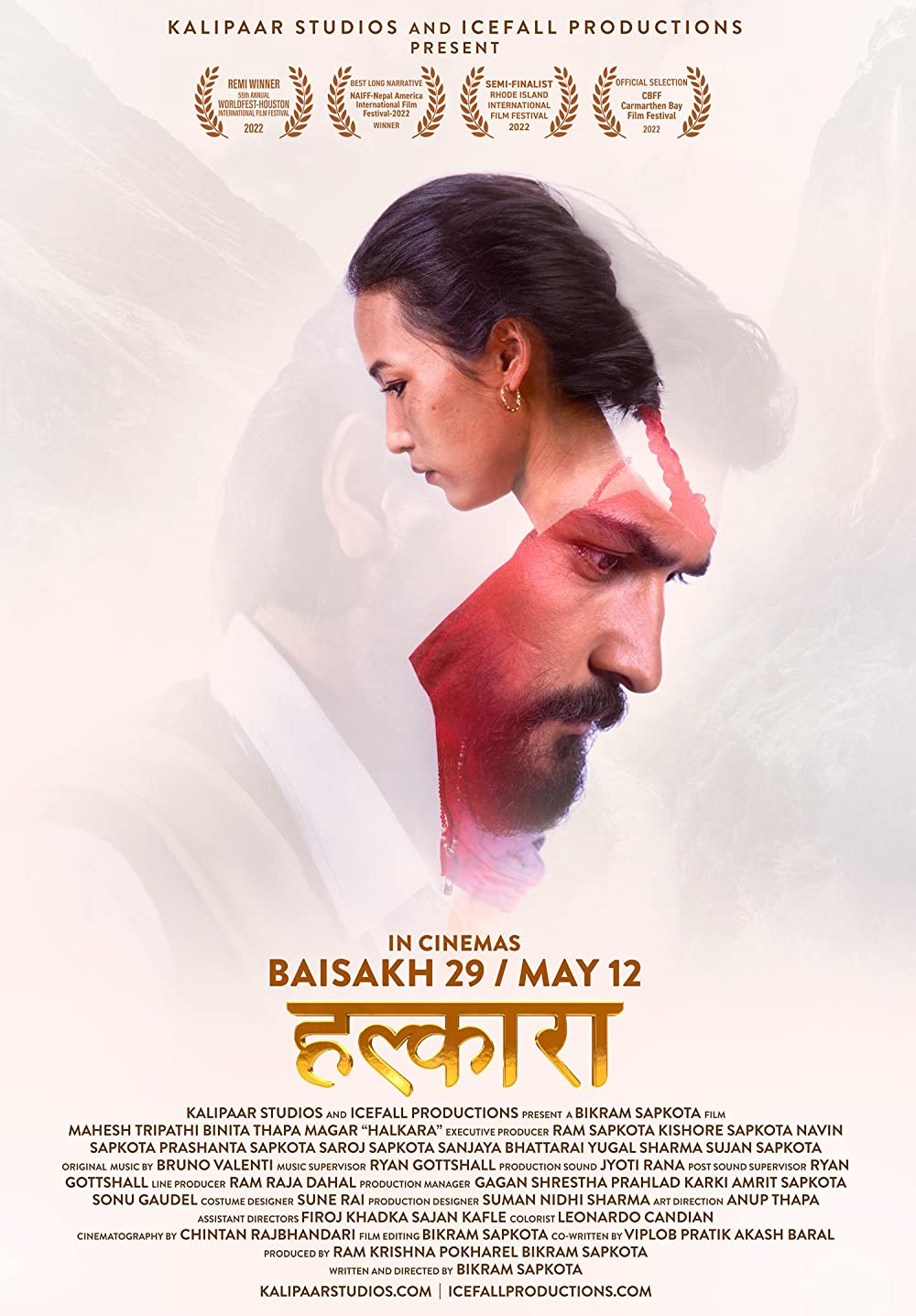Movies
A captivating tale of letters and hope
What truly sets Bikram Sapkota’s ‘Halkara’ apart is its masterful handling of the sensitive topic of labour migration without succumbing to melodrama.
Saugat Nepal
The review contains minor spoilers.
Step back into an era shrouded in mystery, where portraits of King Birendra and Queen Aishwarya adorn the walls of nearly every household. Kathmandu stands as the epicentre of modernisation, while the rest of Nepal remains cradled in untouched natural beauty. Families eagerly anticipate the arrival of a postman—a conduit of communication amidst the verdant hills of Nepal’s monarchic period. Folded within a delicate sheet of paper lay the destiny of the sons unseen by their families for years. Will the letter reveal their well-being and imminent return, or the heartbreaking revelation of their lifeless bodies confined within a coffin?
Enters ‘Halkara’, the revered postman, who not only delivers these precious letters but also serves as a beacon of hope for those unable to decipher the written words.
This is the premise of ‘Halkara’—a new independent film in the theatres. Tormented by his haunting past, the protagonist, Ram, grapples with the present, desperately seeking an escape through foreign employment. His father, however, suggests an alternative path—a government service position as a postman in a rural village left vacant by its former occupant who pursued grander aspirations in the Gulf.
En route to the village, Ram’s path intertwines with Mia, an adorned married woman, as indicated by the crimson 'sindur' gracing her forehead. Word soon reaches Ram through a villager that Mia’s husband, stationed in the Gulf, has remained untraceable for the past two years. As their farewells draw near, the heavens open up, unleashing a torrential downpour. Seizing the moment, Mia invites Ram to seek shelter in her company for the night. Midst the rhythmic pitter-patter of raindrops, their souls intertwine, unravelling a story that follows an unpredictable course.
What truly sets this movie apart is its masterful handling of a sensitive topic deeply ingrained in the hearts of all Nepalis without succumbing to melodrama. In recent times, Nepali cinema has often centred around rural settings, with poverty as a driving force to captivate audiences. It seems as though poverty becomes the primary theme, overshadowing any other storylines, simply because it capitalises on the appeal of societal hardships and the lack of necessities. I've always yearned for movies exploring themes beyond financial struggles. And ‘Halkara’ defies the norm.
While the plot remains intertwined with financial challenges, it exists independently. Despite its nearly two-hour runtime, the film refrains from forcing the audience’s empathy solely based on the characters’ impoverished circumstances or the sons’ overseas journeys. Rather than relying on overt displays of tears, the movie subtly conveys the internal pain experienced by the characters, allowing viewers to connect with their struggles on another level. This understated portrayal of hardships, devoid of dramaticism, is a rare gem within Nepali cinema.
When it comes to the actors, both Mahesh Tripathi (as Ram) and Binita Thapa Magar (as Mia) deliver exceptional performances, upholding the captivating narrative with finesse. Ram grapples with his haunted past, while Mia struggles to find solace in her present circumstances. Tripathi remains consistent, infusing his unique style into the character and delivering a commendable performance from start to finish.
Thapa Magar astounds us with her range. She portrays Mia as a resilient woman who has seemingly accepted her husband’s prolonged absence or possible demise yet harbours a deep longing for companionship and romantic life. She adeptly conceals her vulnerable side beneath a façade of nonchalance, but as the story progresses, we witness glimpses of her warm smile. Thapa Magar impeccably captures this duality, doing justice to the character’s complex emotions. While the leads undoubtedly steal the spotlight, the supporting characters are equally strong.
Another thing that makes this movie special is its compelling screenplay, which maintains an air of mystery until the end. The narrative flows effortlessly while consistently keeping the central theme of the undelivered letter at its core. The dialogues are not overly poetic and seamlessly blend into the storytelling without feeling superfluous. Every line serves a purpose, enhancing the overall cohesion of the film.
However, the combination of the background score and editing truly elevates this movie to new heights. The audio is impeccably balanced, a rarity in Nepalese cinema, and the background music deserves unreserved praise.
The cinematography is also excellent, capturing breathtaking scenes of lush green hills and babbling streams. The camera angles, especially when Mia discovers the letter and confronts Ram angrily, add a touch of splendour to the visuals. The meticulous attention to detail in capturing these scenes enhances the cinematic experience.
‘Halkara’ is a testament to the fact that we have an abundance of captivating stories within our hills, mountains, and plains, which can be executed flawlessly without relying on melodrama or forced comedy.
Kudos to director Bikram Sapkota for crafting such a unique and delightful film. It is evident that, if done with sincerity, Nepali stories have immense potential to captivate and astonish the audience.
Halkara

Language: Nepali
Duration: 2 hours
Director: Bikram Sapkota
Cast: Binita Thapa Magar, Mahesh Tripathi, Umesh Tamang and Pashupati Rai
Released: May 12
Now showing: One cinemas, QFX cinemas




 8.67°C Kathmandu
8.67°C Kathmandu











